Sound of Charlotte Blog
I Am Queen Charlotte: Denielle Wilson
March 8, 2022As the Charlotte Symphony supports I Am Queen Charlotte, we're highlighting stories, experiences, and lives of Black Women who are part of the CSO, from the stage to the boardroom. We asked Denielle Wilson some questions about her personal and professional background and her experience with the CSO.
 |
What is your role with the Charlotte Symphony? Acting Section Cellist. How did you find out about the open position in Charlotte, and what was the process like for being hired? Last year, after becoming the string division winner of Sphinx's Orchestra Partners Audition Excerpt Competition, Charlotte was the first Symphony to offer me a one-year contract. I did not know of the position beforehand, but I was extremely grateful for the opportunity. There were barely any auditions happening anywhere around that time. |
What inspired you to play cello?
My father chose the instrument for me, and I grew to like playing it quickly. The musicians who inspired me early on were Yo-Yo Ma and Jaqueline du Pré.
Did you always know you wanted to perform professionally in a symphony orchestra?
Not at first. I began playing in a youth symphony during high school, and it was a tough learning process for me. It wasn't until my last two years in undergrad that I decided to pursue an orchestral career seriously.
What do you like best about being part of the CSO?
The community -- I feel very welcomed here.
Do you have a favorite piece to play or a favorite CSO concert you've performed in?
I am looking forward to playing Sibelius' Second Symphony in April.
How do you hope to see audiences engaging with classical music?
I would like to see audiences ask more questions about it. I know it is not always familiar to everyone, but I sense that audience members don't think there is more to figure out about it after the live performance experience. I am curious to hear about what aspects of certain pieces stood out to them, or made them wonder.
What inspires you, and where do you find it in your everyday life?
I am inspired by happiness being found. I seek to find it for myself and others in small ways every day, whether it is through a shared meal or a friendly wave.
Read more
Visionary: Valerie Coleman
February 1, 2022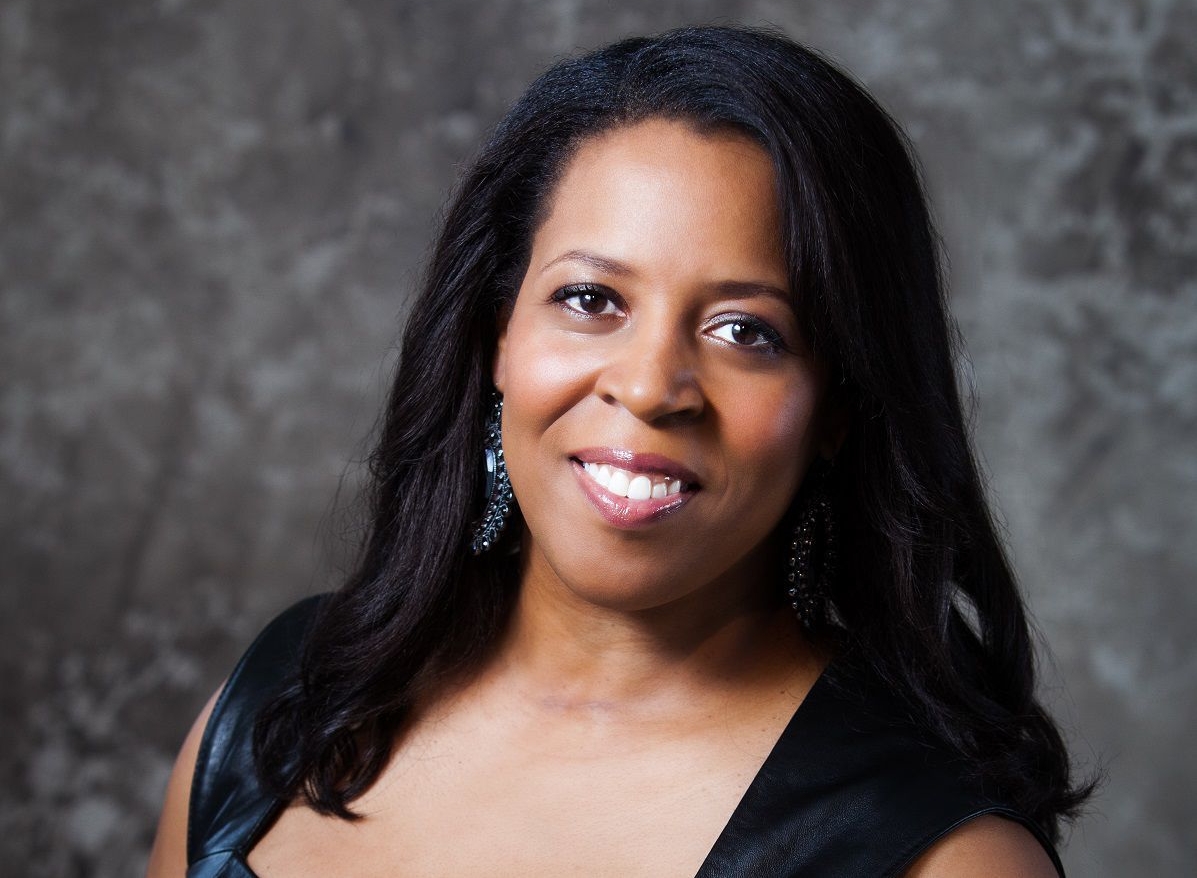
A visionary composer, flutist, and entrepreneur, Valerie Coleman has made significant contributions to modern music. From being named 2020 Classical Woman of the Year (Performance Today) to receiving a nod as one of the Top 35 Woman Composers in Classical Music (Anne Midgette, Washington Post) and a Grammy nomination, Coleman has earned high acclaim, and for good reason.
Born in Louisville, Kentucky in 1970, Coleman had an interest in composing music from an early age. She began formal music education at age 11, and started writing symphonies on a portable organ. Advancing her hobby, by the age of 14 she had written three full-length symphonies and won local and state competitions. She studied music at Boston University and earned a Master's degree in flute from Mannes College of Music. Debuting as a flutist/composer at Carnegie Hall, Coleman has since regularly performed at major music halls across the United States and has collaborated with other performers including Yo-Yo Ma, Chick Corea, Paquito D'Rivera, David Shifrin, Orion String Quartet, Harlem Quartet, Miami String Quartet, Dover Quartet, Wu Han, and many more. With enormous interest in her work as a composer, many orchestras, ensembles, associations, and festivals have commissioned her work; notably, Coleman became the first African-American woman to be commissioned by the Philadelphia Orchestra and the Metropolitan Opera.
Coleman's composition style infuses modern orchestration with jazz and Afro-Cuban traditions, ideas, and social commentary. She incorporates poems and speeches from such diverse figures as African American poet Margaret Danner, Cesar Chavez, Robert F. Kennedy, and A. Philip Randolph in some of her works. Josephine Baker: A Life of le Jazz Hot celebrates the life of Josephine Baker. She honors "the legacy of Native Americans and former African slaves (adopted into Native American tribal membership through emancipation or marriage)" in a chamber piece and recounts stories of trafficked humans in a flute sonata. Coleman is among the most-played composers living today, and her works are deeply relevant contributions to modern music . Umoja, her signature piece for wind quartet, is named after the Swahili word for unity and is listed by Chamber Music America as one of the "Top 101 Great American Ensemble Works".
Coleman's experiences in music from childhood to college inspired her to establish her own chamber music ensemble, Imani Winds, for which she is the resident composer. Using the name "Imani", the Swahili word for faith, she formed the chamber ensemble with African American woodwind players who might approach the music from a similar cultural background. From its beginning, they focused on repertoire inspired by African, Latin American, and North American cultures, and championed non-European composers that were underrepresented in contemporary music. In an interview with NPR, she recollected, "I used to be in the youth orchestra [as a child], and there were so many African Americans. But somewhere along the line, when I got to college, I was the only one in the orchestra. So I wondered what in the world happened here? It came to my mind that role models are needed."
The ensemble and their music has been met with high honors: winner of the Concert Artists Guild competition, resident-artists of Chamber Music Society of Lincoln Center, and winner of multiple ASCAP awards. The music industry recognized not only the musical qualities of Imani Winds' performances and studio albums, but the significance of their work. NPR Music acknowledged, "Imani Winds' members have earned a reputation for expanding the recorded wind-quintet repertoire, but in a way that's culturally significant." In advocacy and mentorship of emerging artists and ensembles, Coleman created the Imani Winds Chamber Music Festival in 2011, a summer mentorship program, which invites musicians from over 100 institutions around the world to advance their own careers from the ensemble Coleman created with her vision of raising up underrepresented musicians. Read more
SLIDESHOW: Spoon River Anthology
October 6, 2021
The Charlotte Symphony kicked off spooky season with the premiere of a new stage adaptation of Edgar Lee Masters' Spoon River Anthology, a series of monologues that collectively tell the story of Spoon River, a fictional small town in Illinois, spoken from beyond the grave by the town's former residents who provide accounts of their lives, losses, and deaths. Charlotte's Elmwood Cemetery provided the perfect backdrop for this supernatural performance.
Meet the Charlotte Symphony’s Newest Musicians, Part I
September 8, 2021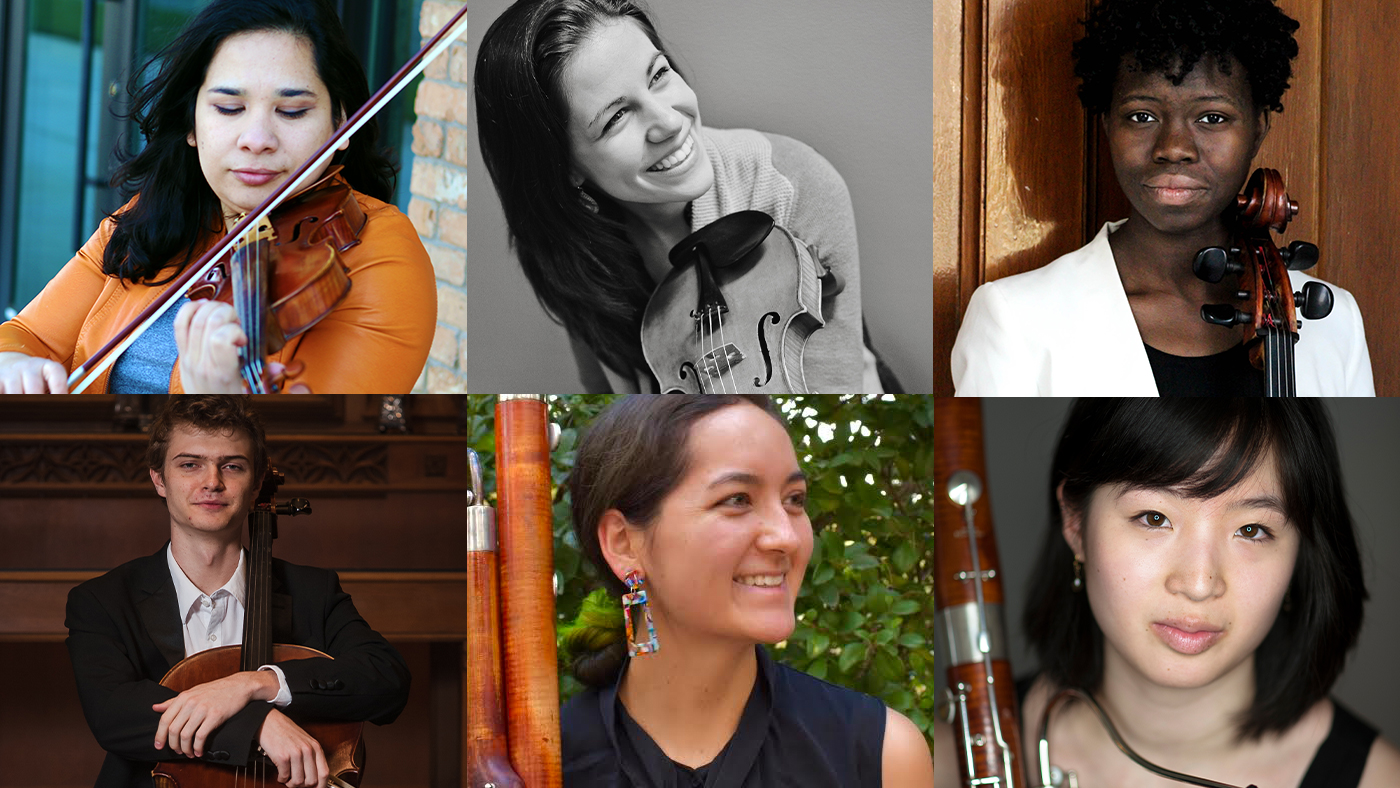
Drew Dansby, Acting Section Cello
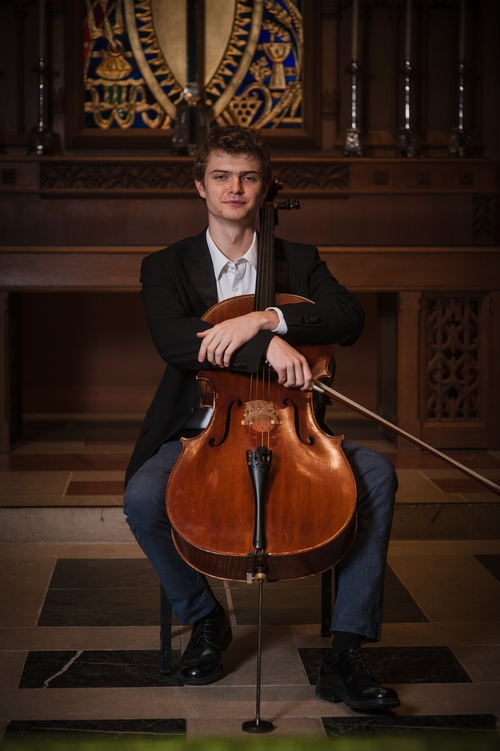 |
How were you introduced to music and the cello? My parents, neither of whom played an instrument, started me on violin lessons on my fourth birthday after I begged them to start playing when I saw a violinist perform at our church. Six months later, I saw another student having a cello lesson before me, and I begged my parents again to add cello. My teacher rented us both instruments and split my lesson time into half violin and half cello. I continue to play both instruments to this day! What do you look forward to most about living and working in Charlotte? I'm really looking forward to spending a year in my hometown with family very close, and exploring more of this constantly changing city. |
What do you do for fun when you're not performing/practicing?
I'm an avid reader, and I also love spending time in nature, doing Sudoku puzzles, volunteering for Crisis Text Line, and continuing my quest to find the best chicken and waffles in Charlotte.
>> Learn more about Drew
Leah Latorraca, Acting Section First Violin
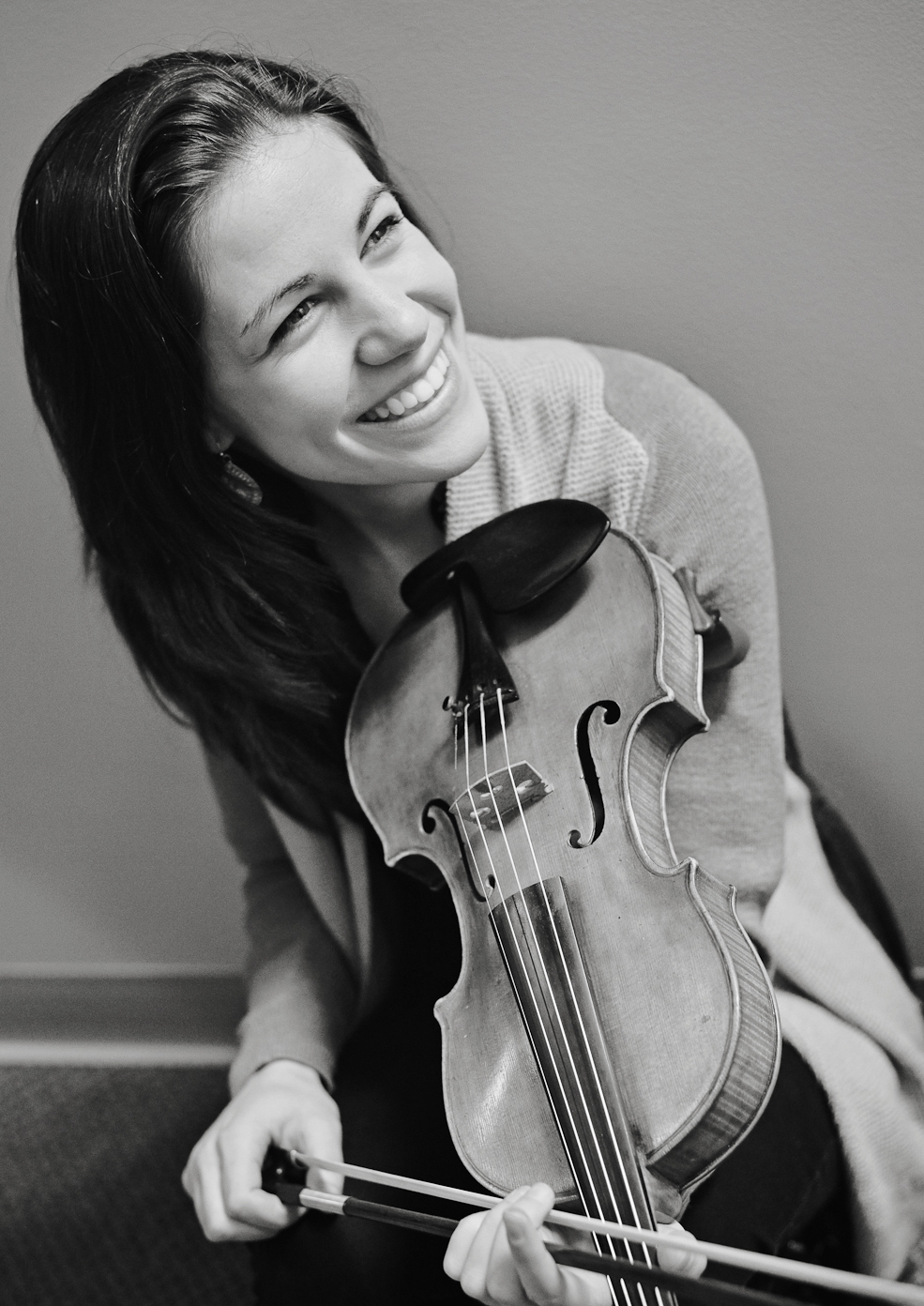 |
Where were you born? I was born and raised in Madison, Wisconsin. How were you introduced to music and the violin? I started playing violin when I was four. My older sister had started taking violin lessons, and naturally, I wanted to copy everything that she was doing! What do you look forward to most about living and working in Charlotte? I am looking forward to meeting and playing with a new group of wonderful colleagues. Outside of work, I am excited to explore Charlotte and see what North Carolina has to offer! |
Outside of violin, I enjoy running, baking, traveling, and hanging out with friends!
>> Learn more about Leah
Margaret O'Leary, Acting Section Bassoon
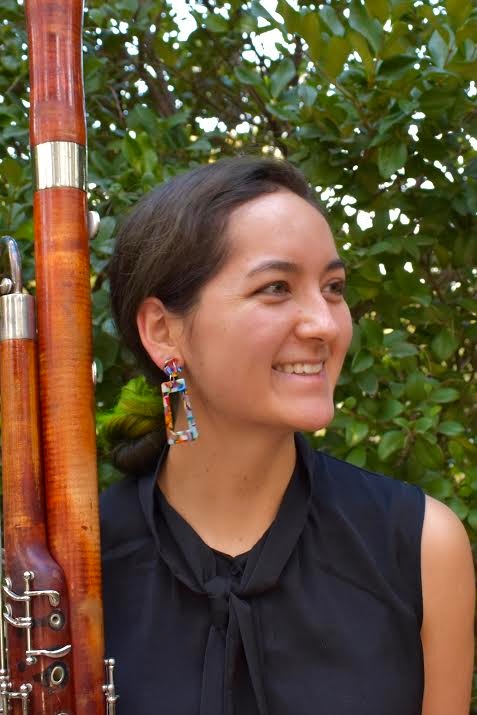 |
How were you introduced to music and the bassoon? When I was in fourth grade I started guitar lessons because I wanted to be in a rock band. However, practicing took way more discipline than I expected and after a year or so I gave up. In middle school I decided to give playing music another try and joined the school band program on the clarinet. A few months later I went to a Boston Pops concert, which was my first time ever seeing or hearing a bassoon. I was intrigued by how many keys it had, and liked the way it sounded. I doubled on clarinet and bassoon for about a year before deciding I wanted to focus on bassoon. |
I'm looking forward to trying new restaurants and visiting Charlotte's museums, but I am most excited just to be playing in an orchestra again. Like most musicians, I haven't had many chances to play with other people over the past year and a half, so I really can't wait to perform more regularly. I feel lucky to be a part of this community; everyone in the orchestra has been very warm and welcoming, and I can't wait to make music with everybody!
What do you do for fun when you're not performing/practicing?
I really like to read, and I'm lucky to live just a short walk away from a branch of the Charlotte Public Library. One new hobby I have picked up recently is playing chess. I'm slowly studying up on strategies, but I also enjoy just playing for fun and seeing what happens.
>> Learn more about Margaret
Alice Silva, Acting Section Violin
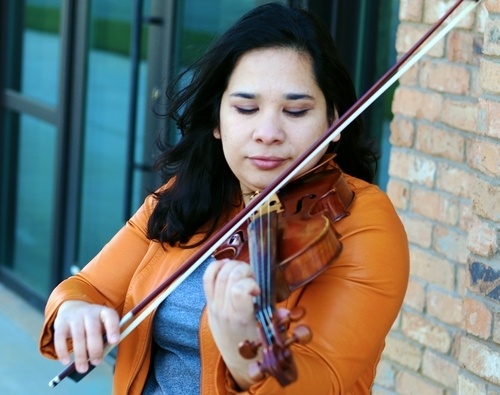 |
Where were you born? I was born and raised in Fortaleza Brazil and came to the U.S. in 2007 to go to college. How were you introduced to music and the violin? I was introduced to music and the violin in my hometown through an afterschool program for underprivileged children. |
Performing is my fun! Besides the symphony, I love playing Broadway shows, operas, weddings, Christmas concerts, chamber music, and in new music ensembles. But I also like to hang out with friends, discover different coffee shops in town, and travel when I can. I am a licensed Realtor in NC and SC and I am also a reservist in the U.S. Army. I am very excited to join CSO for the season!
>> Learn more about Alice
Denielle Wilson, Acting Section Cello
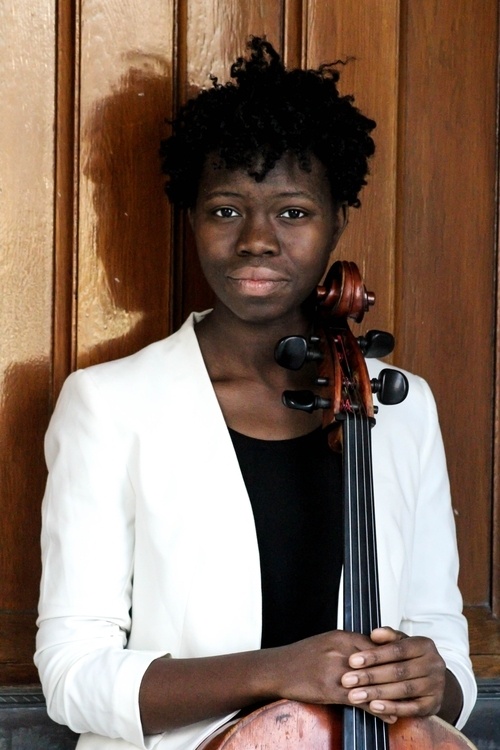 |
How were you introduced to music and the cello? I was primarily introduced to music at church. My father loves singing, and started me and my siblings on piano lessons when we turned five years old. The classical station was often our radio listening of choice, and by the time I was ten, my dad started taking me to cello lessons. What do you look forward to most about living and working in Charlotte? I look forward to getting to know the outdoor beauty of Charlotte, making new friends, and growing more familiar with the feelings of playing in an orchestra full-time. I am hoping to find at least one good vegan/vegetarian Caribbean restaurant. |
I enjoy eating out, listening to music, reading, and having long telephone conversations with my siblings. An occasional visit to the movie theater is also nice.
>> Learn more about Denielle
Naho Zhu, Acting Section Bassoon
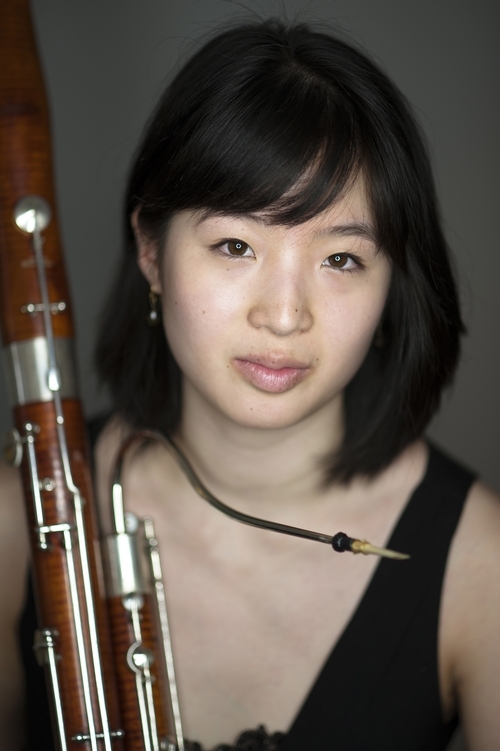 |
Where were you born? I was born in Kyoto, Japan, where I lived until I was 7 years old. After that we moved to Massachusetts, where my parents still live. How were you introduced to music and the bassoon? My mom had me start piano lessons when I was three years old and, apparently, I fell asleep at my first lesson. The bassoon was something I became interested in after I joined the middle school band on the flute. We were working on a piece that had several measures of silence where a bassoon solo was supposed to be but we had no bassoonist at the time, so I volunteered to play it! |
I got a pandemic puppy last year, so I'm excited to explore parks and walking trails around Charlotte with him! Coming from Boston, I'm also looking forward to warmer weather, especially during the winter.
What would like the audience to know about you?
That I'm so grateful for their passion and interest in music! As much time as we spend practicing by ourselves, what really gives our work meaning is the fact that we have people in the audience who are receptive to it, and who hopefully each take away something personal from the collective experience.
>> Learn more about Naho Read more
SLIDESHOW: Celebrating America
July 6, 2021The Charlotte Symphony welcomed over 4,000 fans to Truist Field to Celebrate America with an evening of patriotic favorites and fireworks. Concertgoers enjoyed the North Carolina premiere of Fanfare for Democracy, a work performed at the 2021 Presidential Inauguration; works by Aaron Copland, John Williams, and more; an appearance by Charlotte Knights' mascot Homer the Dragon; and a spectacular fireworks finale. (Photos by Laura Wolff for the Charlotte Knights)
Celebrate America with Your Charlotte Symphony
June 2, 2021
The Charlotte Symphony takes the field on June 25 to Celebrate America with an evening of patriotic favorites and memorable anthems and marches. Truist Field, home of the Charlotte Knights, will be rocking with an all-star lineup of works by Aaron Copland, John Williams, Duke Ellington, and more. And what better way to cap off a celebration of America than with a spectacular fireworks display in the home of America's favorite pastime!
Resident Conductor Christopher James Lees will kick off the concert by leading the CSO in Jim Stephenson's Fanfare for Democracy, a work premiered at the historic inauguration of President Joe Biden and Vice-President Kamala Harris in January 2021.
The concert continues with Morton Gould's American Salute, a tribute to the bravery of America's frontline and essential workers.
Christopher James Lees and the CSO will dedicate John Williams's "With Malice Toward None" to the memory of those who have lost their lives during the pandemic. This piece comes from the critically acclaimed film Lincoln and the title refers to a line from the second inaugural speech of former U.S. President Abraham Lincoln. John Williams chose to set a trumpet solo for this scene -- which will be performed by Principal Trumpet Alex Wilborn -- to remind listeners of its evocations of bugle calls, trumpet annunciations, and the death call of Taps.
The evening will also include popular works by power hitters Leroy Anderson, Aaron Copland, Percy Grainger, Marvin Hamlisch, and Duke Ellington. And we'll keep an eye out for pinch-hitter and Charlotte Knights mascot Homer the Dragon.

In the bottom of the ninth, the CSO will serve up a grand slam of marches by John Philip Sousa, including Stars and Stripes Forever, followed by a spectacular fireworks display that will light up the Uptown sky.
We hope you and your families will join us for a fantastic evening of music and fireworks under the stars! Read more
What I have learned (and am learning) as a professional musician
December 22, 2020
By Violinist Jenny Topilow
As an orchestral player and violinist, like all musicians, I have a long list of compositions that I turn to time and time again for emotional and aesthetic fulfillment on a personal level; works that are particularly beautiful and/or satisfying to me. These pieces include the late Beethoven Quartets, Stravinsky's "Petrushka," Prokofiev's "Romeo and Juliet," Shostakovich Symphony No. 10, the Bartok Quartets, Debussy's "La Mer," Caroline Shaw's "Partita for Eight Voices," and Andy Akiho's "21," to name a few.
It's funny to think, however, that the most memorable and important moments that I have had as a member of the Charlotte Symphony really have nothing to do with my list of favorite works. The most poignant experiences of my tenure as a musician are exactly that, experiences; experiences that have deeply moved me, changed my perception, taught me, connected me to those around me, and have brought me closer to my community.
Major side note: I'm not a huge fan of the term "classical music" as I feel that "classical" is simply a descriptor of a specific era in Western music (i.e. Mozart, Beethoven, and Brahms). I would never discount the absolute brilliance of those composers, yet the breadth of what is coined as "classical music" encompasses so much more than what the antiquated term has to offer. Maybe "orchestral music" and "art music," etc., could serve our purposes better.
But, I digress, because even if I personally believe it's outdated, I still call myself a "classical musician," since the label itself is the most recognized tag for what I do -- interpret and play music written by other people. In that sense, we are more like actors; we are not creators, we are not artists (in my opinion), but we have devoted ourselves to creators and artists. So at its core, even though it is vast, every orchestra on the planet plays music from a finite pool of works. That being said, what I have learned is that it is not the music (alone) that makes an orchestra, but the community that it is part of. The Charlotte Symphony belongs to all of Charlotte; every member of the community should feel ownership of the organization and all arts organizations throughout the city. It's this sense of ownership that builds commitment, connection, and those beautiful, profound experiences through music that are transcendent, beyond the notes on the page. All art for all people.
It would be remiss of me to not give personal examples of music plus circumstance making for meaningful experience. Here are two:
- The CSO accompanied the Morehouse College Glee Club in a performance of Atlanta based composer Joel Thompson's "Seven Last Words of the Unarmed," a work that uses the liturgical format of Haydn's "Seven Last Words of Christ" to honor and humanize black men unjustly murdered, namely Michael Brown, Trayvon Martin, Oscar Grant, Eric Garner, Kenneth Chamberlain, Amadou Diallo, and John Crawford. It is a sobering piece that reminds us of how powerful art can be when inspired by, and dedicated to, relevant and pertinent issues. The experience of the performance connected everyone in the room through a shared understanding of the necessity of the message and the emotion of that message being delivered through song by those directly affected by the theme of the work.
- Last season the CSO started a series called CSO Off the Rails, where smaller ensembles curate programs to be played at Snug Harbor, a local club/bar/music venue and Charlotte staple. Essentially standing room only with a small stage about three feet off the ground, these shows are really an immersive and interactive experience, bringing what we do to an audience that wouldn't necessarily seek out music at a concert hall. The success of the series, the energy surrounding it, and the electric atmosphere in the room during performances has solidified in my mind that "classical music" is completely accessible to everyone when we remove the formality and actively engage with the community.
Playing for the Panthers
December 15, 2020We got a kick out of opening this Sunday's Carolina Panthers game with a rousing rendition of The National Anthem. The game may have been a loss for the Panthers, but it was a win for Byron Johns (French horn), Alex Wilborn, Jonathan Kaplan (trumpet), Thomas Burge (trombone), and Scott Hartman (bass trombone), who didn't fumble a single note. Go team!
The path to playing professionally, by CSO Violist Viara Stefanova
November 30, 2020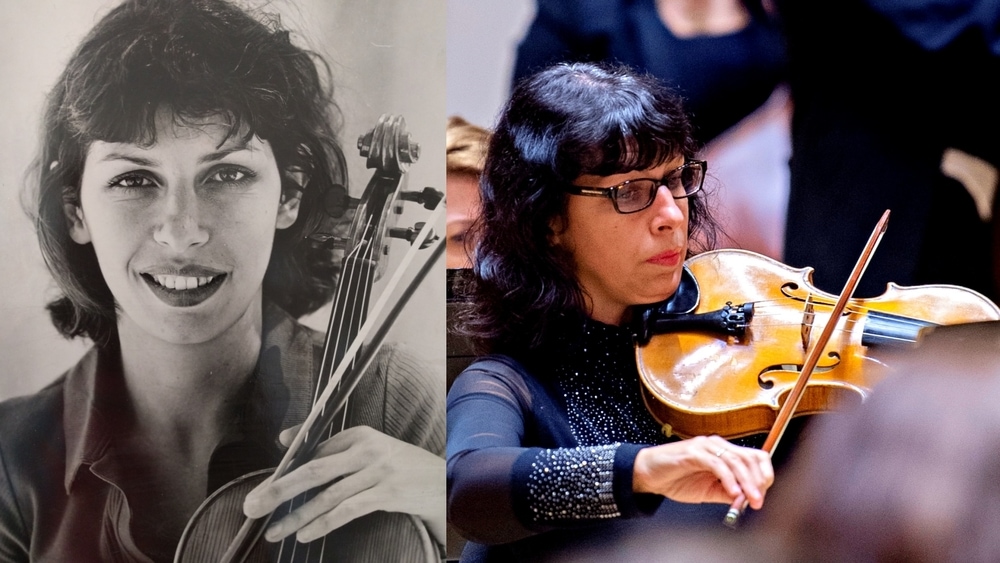
Making music isn't like listening to music. It isn't like anything else in life. It is something very special for all musicians. It's our life, our call, and our love. Experiencing the power of playing on stage is unlike any other experience or feeling. There is so much meaning in the melodies and harmonies we play; it's a world of constant discoveries of the human's state of mind, heart, and soul. Once we've been on stage, we can never forget it, and we keep doing it no matter how many challenges we might face.
It all starts in our childhood. At first we're curious and excited about the instrument we pick. We learn a couple of songs and then some harder songs, and it's all good and still exciting. Later on, when we are ready to play not just songs, but some classical repertoire, the real challenge appears. Sometimes practicing seems tedious, tiring, and frustrating. Many times it felt like we would never get it right, no matter how hard we tried. Day after day, after hours of practicing, we would find out how much perseverance, patience, and determination we would need to achieve a higher level of understanding and perform the music we love. The more we played though, the more difficult it got and the more we knew that our love for music would take us to an unimaginable beauty. Before we learned any piece of music, we would have to study the different styles, forms, and structure of the music.
Once we were in college we continued to learn how to practice efficiently and wisely; what to do to avoid the sore muscles and physical pains from over practicing. We would continue with even more patience and would keep pressing on, since the professional auditions are tough. We had to compete with hundreds of fellow musicians for one spot in the orchestra. We had to stay healthy emotionally after we failed an audition and learn how to deal with it.
The more challenging it got, the more fascinated we were, and the better we understood the incredible genius of the composers. Every chord, every harmony is there for a purpose. The complicated works by composers like Brahms, Mahler, or Tchaikovsky are difficult not only technically but also musically. A performer needs to be experienced and mature to understand the music and perform it the way it's meant to be performed. The simple melodies of the classical composers like Mozart or Beethoven are even harder to perform because it takes a world to achieve the lightness and simplicity of their music. Every note is so exposed, every slip of the finger can be heard. It all takes a practice-until-perfection approach. And even though we can't be perfect, we continuously aim for it. There is no other way to play an exceptional work of art."The more we played though, the more difficult it got and the more we knew that our love for music would take us to an unimaginable beauty."
So, we do whatever it takes to bring to life the amazing music that influences people's lives; because we understand what a great privilege it is to perform works written by some of the most extraordinary minds born on this earth. Read more
Celebrating the Power of Women in Art
November 24, 2020The artistic collaboration features Charlotte Symphony violinist Jenny Topilow, violist Alaina Rea, cellist Sarah Markle, and harpist Andrea Mumm Trammell performing works by Arvo Pärt and Caroline Shaw in front of Summer Wheat's contemporary work of art in the Mint's Robert Haywood Morrison Atrium.
We welcome you to experience the power of women in art presented at the intersection of art, architecture, and music.
This special presentation is brought to you by Wells Fargo, The Private Bank.
| « Newer Posts | Older Posts » |
Latest Posts
- MERGE: Symphonic x Electronic
- Heart of the Home Tour Returns
- Composer Spotlight: Nia Imani Franklin
- More Famous Than Mozart: Joseph Bologne, Chevalier de Saint-Georges
- Art in Motion: Rosalia Torres-Weiner Chosen to Design CSO Roadshow
- Announcing Kwamé Ryan as the Charlotte Symphony’s Next Music Director
- Photos: Charlotte Symphony Annual Gala and Concert
- Five Must-See Concerts of the 2023-24 Season
- 5 Pro Tips for the Best Summer Pops Experience
- A Preschool Performance Three Years in the Making





























